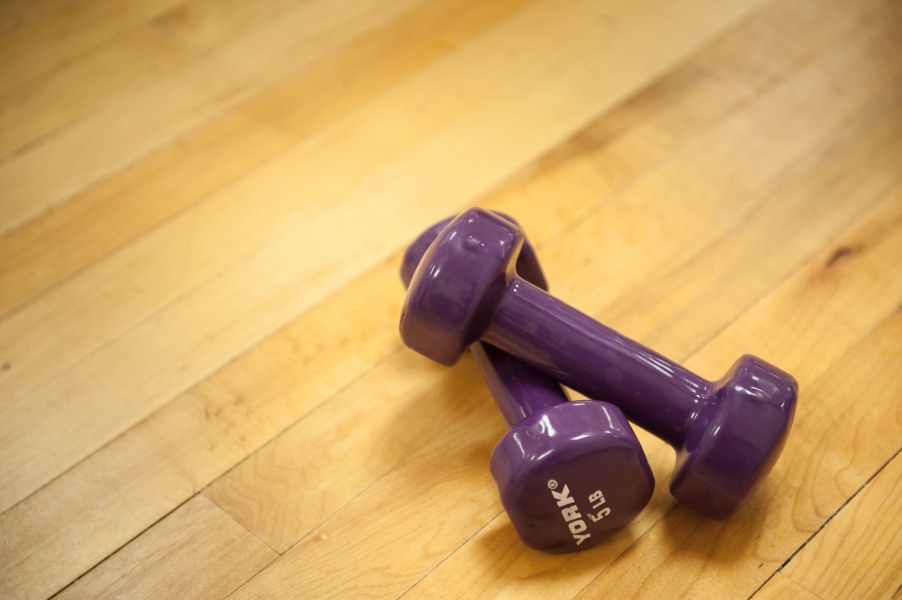Get moving! UPEI contributes to Canada’s first-ever 24-hour movement guidelines

UPEI researchers contributed to Canada’s first-ever 24-Hour Movement Guidelines for Adults. The guidelines show Canadians what a healthy 24 hours looks like when it comes to physical activity, sedentary behaviours, and sleep, featuring recommendations for those 18–64 and 65 and older. The guidelines were developed by the Canadian Society for Exercise Physiology (CSEP), the Public Health Agency of Canada, Queen’s University, ParticipACTION, and a network of researchers and stakeholders from across Canada, including a team of faculty, staff, and students led by Dr. Travis Saunders, an associate professor in Applied Health Sciences at UPEI.
“Canadians have long recognized the health benefits of moderate to vigorous physical activity,” said Dr. Saunders, who served as content expert for sedentary behaviour. “These new guidelines provide additional ways to improve our health by performing various types of physical activity every day, reducing our sedentary behaviour, and sleeping well. Our team at UPEI was honoured to contribute to this important process, which we believe will lead to a healthier, more active future.”
The guidelines are unique because it is the first time there are recommendations that integrate the three movement behaviours (physical activity, sedentary, and sleep behaviours) for these age groups, rather than view them in silos. They also feature new recommendations on light physical activity including standing.
“These guidelines pull together the best available evidence from across the globe to show Canadians how to make their whole day matter when it comes to movement behaviour,” said Dr. Robert Ross, Chair, CSEP Consensus Panel. “They are arriving at a critical juncture in the country’s overall health. It’s important that Canadians understand that while it may feel challenging at times, some activity is always better than none, and progressing towards any of the guideline targets will result in important health benefits.”
Even before COVID-19, Canadian adults received a grade of “D” for overall physical activity according to the ParticipACTION Report Card on Physical Activity for Adults, and Canadians are now finding it harder than ever to stay active. The report card also showed 29 per cent of adults in Canada fall within the “low active” lifestyle category, and adults 18 to 79 years old are sedentary for almost 10 hours per day.
Adults following the guidelines can achieve health benefits including a lower risk of death, cardiovascular disease, type 2 diabetes, weight gain, several cancers, and improved bone health. Specific to psychosocial health, participation in optimal levels of movement behaviours has been linked to improved anxiety, depression, dementia, cognition, and quality of life. For adults 65 and older they can also see a lower risk of falls and fall-related injuries.
The Canadian 24-Hour Movement Guidelines focus on three core recommendations for adults, listed below. It is important to note that all types of movement matter, and a balance is required for best health.
- 1. Move More: Add movement throughout your day, including a variety of types and intensities. Aim to accumulate at least 150 minutes per week of moderate to vigorous aerobic physical activity, muscle strengthening activities at least twice a week, and several hours of light physical activities, including standing. Those 65 and older should also include physical activities that challenge balance.
- 2. Reduce Sedentary Time: Limit sedentary time to eight hours or less per day including no more than three hours of recreational screen time and breaking up long periods of sitting where possible.
- 3. Sleep Well: For those aged 18–64 set yourself up for seven to nine hours of good quality sleep on a regular basis, and seven to eight hours for those 65 and older. Consistent bed and wake-up times are also key.
Replacing sedentary behaviour with additional physical activity and trading light physical activity for more moderate to vigorous physical activity, while preserving sufficient sleep, can provide greater health benefits.
“COVID-19 has given us a chance to take stock of what is most important in our lives, and for many that is our own health and the health of our loved ones,” said Elio Antunes, President and CEO of ParticipACTION. “A key driver to our overall health is incorporating movement of any type or intensity into our daily routines. Having a healthy day should be top of mind for all of us right now, and that means being active, reducing sedentary behaviour, and getting a good night’s sleep.”
To learn more about the Canadian 24-Hour Movement Guidelines for Adults, visit csepGuidelines.ca. For ideas and resources on how to get more active, visit ParticipACTION.com and download the ParticipACTION app.
About the Canadian Society for Exercise Physiology
The Canadian Society for Exercise Physiology (CSEP) is the resource for translating advances in exercise science research into the promotion of fitness, performance, and health outcomes for Canadians. CSEP set the highest standard for qualified exercise professionals through evidence-based practice and certification. CSEP is the GOLD STANDARD of health and fitness professionals dedicated to getting Canadians active safely by providing the highest quality customized and specialized physical activity and fitness programs, guidance, and advice based on extensive training and evidence-based research. For more information, please visit www.csep.ca.
About ParticipACTION
ParticipACTION is a national non-profit organization that helps Canadians move more. Originally established in 1971, ParticipACTION works with its partners, which include sport, physical activity, and recreation organizations as well as governments and corporate sponsors, to make physical activity a vital part of everyday life. For more information, please visit ParticipACTION.com.